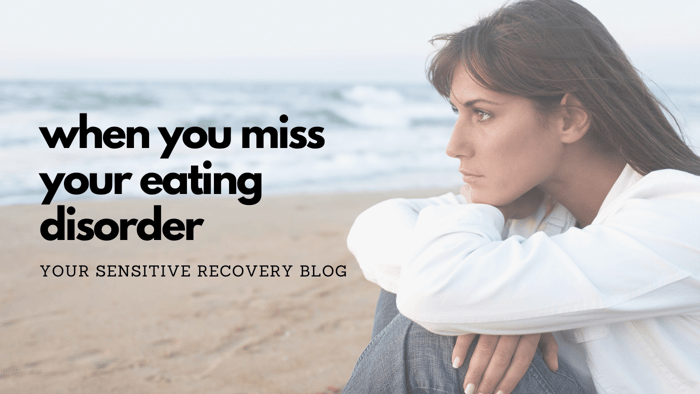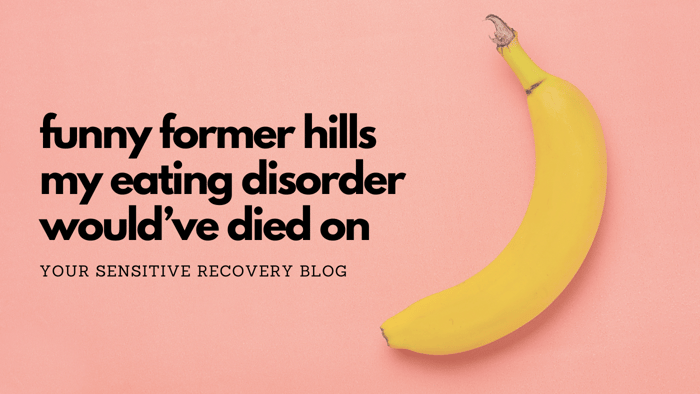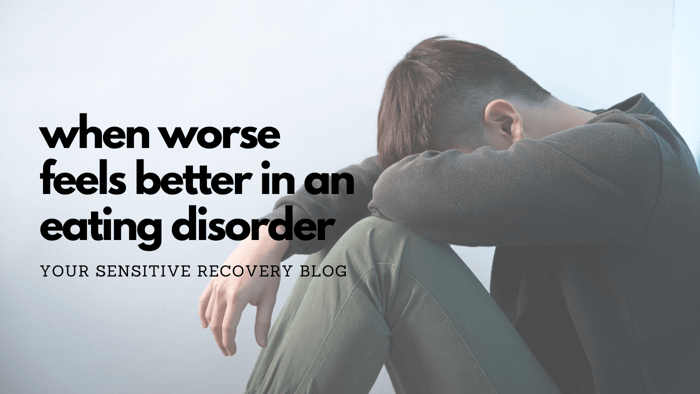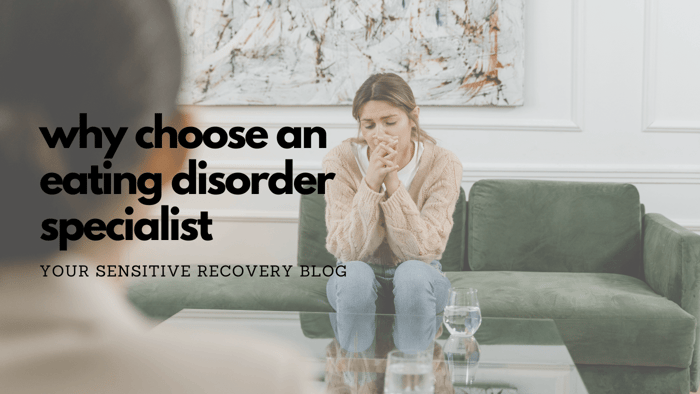Guess what? It's ok to miss your eating disorder. And I have 4 tips for moving through this common and completely natural part of recovery.
I have a distinct memory of myself on a school bus, gazing out of a rain-streaked window. My day had been fun, and nothing terrible had happened, but as I focused on my own reflection amidst the raindrops, I sighed heavily and thought, “How sad." For the rest of the ride, I imagined I was in a movie, filming a dramatic, heartbreaking scene.
Later on, when I developed an eating disorder, I embraced the darkness and inner drama that accompanied it and even began to define myself by it.
I couldn’t see that I was doing this at the time. But I can see it now, and I can see how recovery threatened that dark identity.
It’s more normal than you think, missing an eating disorder.
In the quiet moments when you’re alone with your thoughts, you might find yourself romanticizing past behaviors or missing the comfort of the ever-present ED voice.
And that’s ok.
For myself, and the majority of the clients I’ve worked with, there comes a point where fear of living without your most major coping tool becomes a huge stumbling block on the recovery journey. Below are four things to do to help navigate this tricky yet completely valid part of your journey.
1. Allow all the feels.
Moving through eating disorder recovery is a lot like moving through the stages of grief. Think about the Denial stage: “My binging isn’t that bad. Other people need help more than me”, or the Bargaining stage: “I’ll stop purging if I can have a guarantee that I won’t gain weight”, or the Acceptance stage: “I can see now that no amount of weight-loss made me a happier person.”
All change is associated with some form of loss, even positive, exciting change.
Making space for and accepting all of your feelings actually helps you move through periods of transition. Grief is a healthy and natural part of life. In moments of missing ED, skip the judgment. Feel your feelings, and through this will come healing.
2. Look for the ways your eating disorder serves you.
This is an essential part of eating disorder treatment; figuring out how your disorder works for you, in ways that go deeper than food and body image. It’s necessary to look underneath at what’s called “the secondary gains.”
My own eating disorder served many purposes. Two big ones were that it kept me distracted, and it served as an emotional boundary with others when I could not draw healthy ones. Knowing this, I was able to put my eating disorder out of a job, by working to have these needs met in healthier ways.
3. Take time for self-care.
We’ve all heard it, time and time again, the importance of self-care. However, when things get busy, it’s the first to go. Recovery is a difficult process. There are good days and bad, and some days that are just "meh." But no matter how your day is going, self-care is always a good idea.
Being kind to your body, mind, and soul, will increase your resiliency and your ability to bounce back from difficult times.
4. Celebrate the movement.
If you have reached the point of missing your eating disorder, congratulations! This means you’ve made noticeable progress moving away from disordered behaviors and/or thoughts. This is a tremendous step. Don’t let moments of grief and hindsight stop you from continuing forward. Wait until you’ve truly lived life in full recovery before deciding it's not for you. Give your Healthy-Self a fair chance.
Do you need help working through grief as you say goodbye? A specialized professional can help.
✨ Josie Munroe, LMFT is a licensed therapist and owner of JosieMunroe.com and Your Sensitive Recovery As a recovered clinician and Highly Sensitive Person, she loves supporting others on their journeys to form new, empowered relationships with food, their bodies, and their sensitivity. Join the newsletter for a weekly boost of hope and inspiration. You deserve a recovery that works for you! ✨





